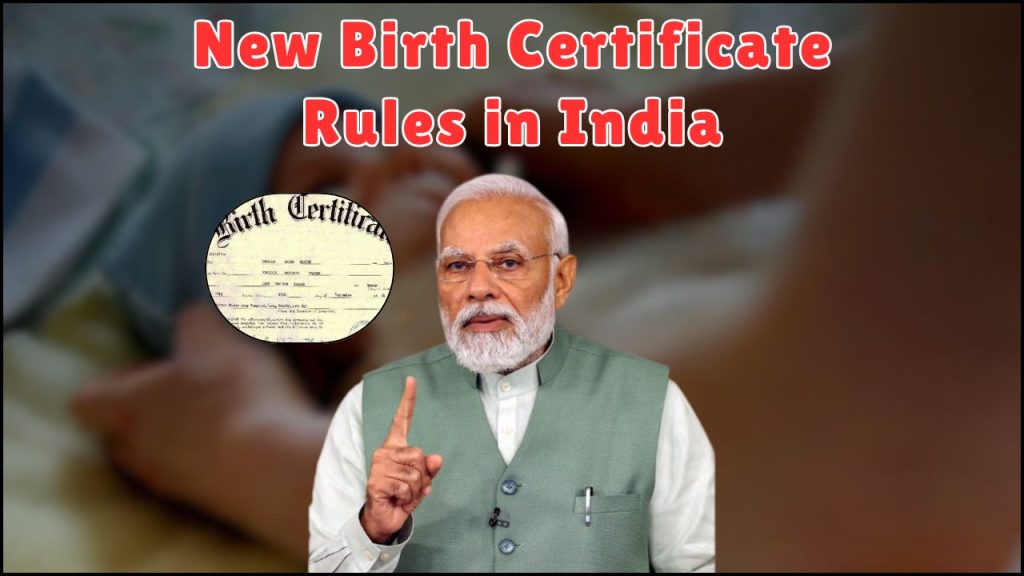
In a significant move toward digital governance and streamlined bureaucracy, India has introduced comprehensive new birth certificate rules that will transform how citizens interact with this fundamental document. These changes, which came into effect following the Registration of Births and Deaths (Amendment) Act, 2023, establish the birth certificate as a singular, authoritative document for verifying date and place of birth across all official platforms. Here’s what every Indian citizen should understand about these pivotal reforms.
The One Nation, One Birth Certificate Initiative
The cornerstone of these reforms is the “One Nation, One Birth Certificate” initiative, designed to create uniformity and ease of access across the country. Under the new birth certificate rules, this document will serve as the primary proof of birth details for numerous essential services, eliminating the need for multiple verifications through different channels.
The government has mandated that all state administrations integrate their civil registration systems with the Centre’s unified database, creating a seamless digital ecosystem for identity verification. This integration ensures real-time access to birth records, significantly reducing processing times for various applications and registrations.
Services Now Requiring Birth Certificates
With the implementation of these new guidelines, birth certificates have become mandatory for accessing several crucial services:
- School and college admissions
- Voter ID registration
- Driving license applications
- Passport issuance
- Aadhaar card enrollment
- Government job applications
- Marriage registration
- Property transactions and inheritance matters
This expanded scope makes it essential for every citizen to ensure their birth certificate is accurate, updated, and properly digitized in the national system.
Digital Birth Certificates: The Application Process
For citizens needing to obtain or update their birth certificates under the new framework, the government has established a streamlined digital application process:
- Visit your state’s official civil registration website
- Register or log in using your mobile number or email
- Complete the application with all required details
- Upload supporting documentation (hospital records, parent ID proof)
- Track your application status in real-time
- Download your digitally signed certificate upon approval
- Use this digital document across multiple platforms
For new parents, the process has been further simplified—hospitals will now directly upload birth data into the central system, reducing delays and paperwork for families welcoming newborns.
Implications for Different Citizen Groups
For New Parents
The new birth certificate rules bring welcome relief to new parents. With hospital-to-system direct uploads, the time-consuming process of visiting municipal offices and submitting multiple documents has been eliminated. Parents can now expect to receive their child’s digital birth certificate more promptly, allowing for faster enrollment in various essential services.
For Adults Without Birth Certificates
If you’re among the many adults who never received or have misplaced their birth certificate, these reforms make it imperative to apply immediately. Visit your local municipal office or use the online portal to initiate a delayed registration application. You’ll need to provide alternative documents such as school records or affidavits to support your application.
For NRIs and Migrants
For non-resident Indians and internal migrants, the digital framework offers significant advantages. Your birth certificate can now be verified from anywhere in the world, eliminating geographical constraints and the need to carry physical copies when relocating or traveling.
Benefits of the Reformed System
The transition to this unified system offers numerous advantages for citizens:
- Reduced documentation burden: One document serves multiple purposes
- Enhanced data security: Centralized verification reduces fraud risks
- Faster processing: Digital verification speeds up applications for schools, jobs, and IDs
- Improved accessibility: Access your records anytime, anywhere
- Greater transparency: Clear verification pathways improve accountability
Comparing Old and New Frameworks
| Feature | Previous System | New System |
|---|---|---|
| Verification Method | Manual, requiring multiple documents | Single document verification |
| Data Management | Localized at municipal bodies | Centralized digital database |
| Service Integration | Limited applications | Fully integrated across government platforms |
| Accessibility | Physical copies required | Digital, instant access |
| Fraud Prevention | Vulnerable to manual errors | Enhanced through centralized verification |
What To Do If You Don’t Have a Birth Certificate
If you currently lack a birth certificate, follow these steps without delay:
- Gather available records such as hospital discharge papers, school certificates, or other identity documents
- Visit your municipal office or access the online portal
- Submit an application for delayed registration along with supporting evidence
- Once approved, your digital certificate will be issued and linked to other national platforms
Checking Your Digital Status
To verify whether your birth certificate has been digitized under the new system:
- Visit the Office of the Registrar General of India (ORGI) website or your state’s civil registration portal
- Enter your details, including name, date of birth, and place of birth
- The system will indicate whether your record exists in the digital database
- If available, you can download your digitized certificate immediately
Moving Toward a Digital Future
The new birth certificate rules represent a significant milestone in India’s digital transformation journey. By establishing birth certificates as the foundation of identity verification, the government is building a more efficient, transparent administrative system that benefits all citizens.
For students, professionals, senior citizens, and families alike, these reforms promise to reduce bureaucratic hurdles and simplify interaction with government services. As the nation embraces this digital shift, every citizen needs to ensure their birth certificate is properly registered and digitized.
Take proactive steps today to verify your status in the new system. Whether you’re registering a newborn or updating your records, embracing these new birth certificate rules will secure smoother access to essential services and support India’s vision of streamlined digital governance.
Disclaimer: This article is for informational purposes only. For official guidelines and application procedures, please consult your local municipal authority or visit the government’s civil registration portal.

Katherine Johnson is a passionate writer with a keen interest in storytelling, content creation, and creative expression. She enjoys exploring diverse topics and crafting engaging narratives that captivate readers.



